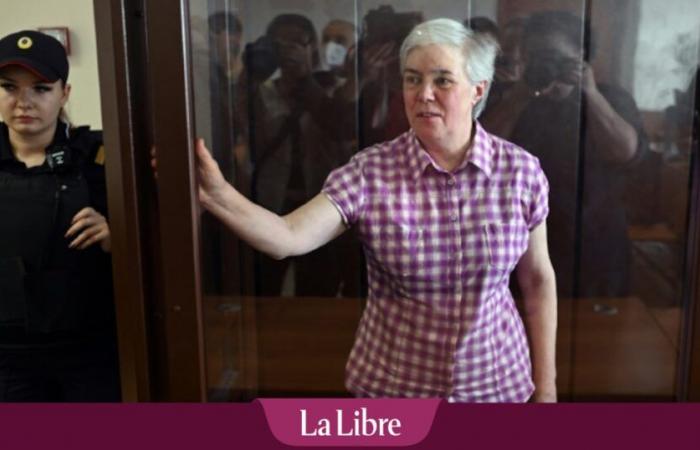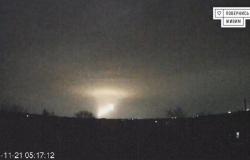
The prosecution had requested six years in prison, while the defense had requested the acquittal of Ms. Bouïanova, who had proclaimed her innocence to the court.
“Putin is killing my close friends one by one”: two months after his release, opponent Ilia Iachine speaks about his detention in Russia
“I do not admit my guilt, I am innocent,” she said, in tears, before the start of a previous hearing. “None of this is true.”
This case illustrates the ruthless repression targeting critical voices, real or supposed, of the large-scale offensive by the Russian army against Ukraine ordered in February 2022 by President Vladimir Putin.
Arrests for espionage, treason, sabotage, extremism or for simple criticism of the army are increasing, with the result of very heavy prison sentences for the accused, often victims of denunciations.
Judicial ordeal
For Nadejda Bouïanova, the ordeal began on January 31 when the companion of a soldier missing at the front in Ukraine, Anastassia Akinchina, 34, denounced her.
This mother of a seven-year-old boy treated by Ms. Bouïanova accused the pediatrician of having told her during a private conversation that her husband who had disappeared in Ukraine “was a legitimate target” for the Ukrainian armed forces and that “Russia was an aggressor country and attacked Ukrainian civilians.
A version refuted by Nadejda Bouïanova who described Ms. Akinchina as “a person with an unstable character”, leaving “nervous and unhappy” from a consultation to treat her child’s stye.
Following these accusations, the pediatrician was immediately fired and had only ten minutes, she says, to pack up her things and leave the hospital in which she had worked for four years.
But her nightmare was then far from over: she was then indicted in February, placed in detention in April, for “spreading false information” about the Russian army which was allegedly motivated by “ethnic hatred”.
Nadezhda Buïanova has lived in Russia for thirty years but was born in Lviv, a large city in western Ukraine, considered in Russia to be the bastion of Ukrainian nationalism.
“What hatred could I feel? I am linked to three Slavic peoples: Russia, Belarus, Ukraine,” the pediatrician defended herself last week in front of the court, before bursting into tears and pointing out the lack of “evidence” against him.
Nadezhda Buïanova’s colleagues launched an online petition for support. His dismissal was canceled in July by a Moscow court, without this having any impact on the criminal proceedings.





